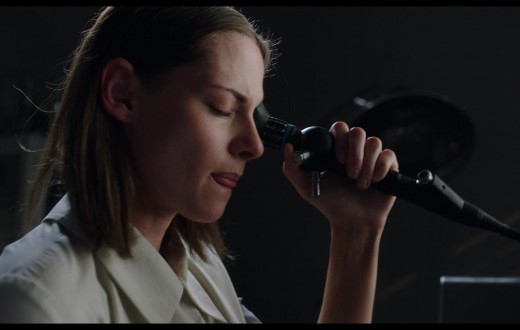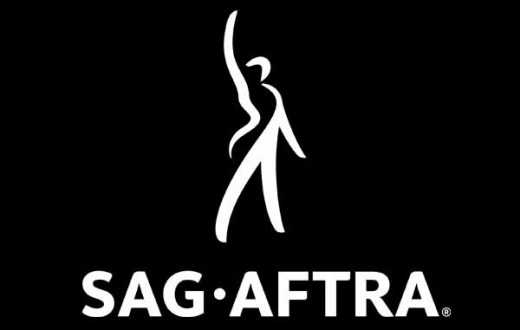Ah, auditions. If only there were some scientific formula actors could follow to ensure that they would book the job every time they go read.
Of course, there isn’t. (And if there were, people who write acting advice columns would be looking for work! But that’s neither here nor there…)
Acting – and especially auditioning – is a famously intangible, ephemeral experience, for both performer and observer – and that’s part of its beauty, and why we’re drawn to it.
The truth is, when you talk to casting directors over a few cocktails, even they often have a hard time really putting a finger on what specifically made them choose one actor over another. So, sorry, there doesn’t exist any robotic checklist of steps you can take that will guarantee you get cast.
However, take heart! What does exist is a list of five qualities that are universally agreed upon by most everyone in the industry as necessary for actors to be seriously considered for a role when they’re auditioning.
We’ll get to that in a second. It’s important to note first of all that of course talent has a great deal to do with it.
But I think we’d all agree that talent isn’t the only consideration. Ask any actor who has been passed over for that one role they really wanted for an actor whom they KNOW is simply NOT as good as they are. (It’s happened to everyone. Look for a column on “overcoming bitterness” coming soon!)
But talent will of course take precedence. So keep taking classes and expanding your toolbox. But also consider that casting directors often decide on an actor in the first ten seconds you’re in that room. So think about how you measure up when it comes to the following, before you’ve even shown them the depth of your talent!
1. Confidence
Put yourself in a casting director/director/producer’s shoes for a second. If you were looking to make a massive investment in an actor not only in financial terms, but also an investment in time, and most importantly, an investment in terms of bringing a team member on board to help you create your project – to help you bring your baby into the world, if you will – are you looking for someone who is confident? Or someone who seems nervous and uncertain? No contest: you want the guy or girl who walks into the room, eyes bright and easy smile on their face, the one who radiates the fact that they know what they’re doing. And keep in mind too that arrogance is not the same as confidence. In fact, arrogance is a mask for deep, debilitating insecurity. Being confident is not the same as being a jerk. Learn your job, get good at it, learn your lines and prepare yourself to the point where you know what you’re doing – and put aside the silly voices inside your head that try to tell you don’t.
2. Knowledge
This one relates to the above, but it runs deeper too. Yes, you need to know what you’re doing when you get in that audition room, in rehearsals, in front of the camera, or on stage. But knowledge also means you need to have a depth and breadth of understanding of how the industry works, how to perform the role, how to make adjustments as needed, and the technical aspects of the job you’re putting yourself up for. You also need to have the ability to apply that knowledge in a working atmosphere and offer your own take and expertise on the day, in the give-and-take, sausage-making process that is creating art. To be knowledgeable is to be a good team member, and you must be able to show that quality in your audition.
3. Self-Awareness
To be the actor who knows who they are, and how they fit into the business as well as how they fit into the project is a vital piece of making yourself the most castable person in the room. Look, we all love to play with the frontiers of our range as actors, to push against the edges of our limitations, and to have fun going against type from time to time. But when it comes to being castable, and booking roles, and getting jobs in a highly competitive industry, that sort of thing is going to have to wait for when you’re working on your personal projects – at least when it comes to the audition. There are plenty of directors out there who will encourage their actors to play, at least during the early stages of rehearsals, and who nurture an experimental environment. But the audition ain’t the place for that. The audition is where you must have a 100 percent solid understanding of your type, and what you present as when people look at you and listen to you. It’s the place where you show you are fully committed to whatever that may be, and that you are prepared to bring those qualities to the fore in your own unique way. Also, you need to have an understanding of how your particular look and vibe fit in with the character you are seeking to play. If you’re reading for the role of the kooky next door neighbor in a buddy comedy, maybe don’t bring your Jack Bauer face into the audition, yeah?
4. Individuality
So let’s talk uniqueness. You’re sitting in that waiting room with 20 other people who have the same general look as you. What is it about you that makes you the right choice for the casting team? What is your unique spin on the general type you go out for all the time? This isn’t something that can be directly answered here, but it is something you should give some thought to. Ideally it should be a part of your homework and your research. One good exercise is to pick a Hollywood actor who plays roles similar to the ones you get called out to audition for, and go through their IMdB page. Check out the other films or television shows they’ve done where they play similar characters, and think about what quality they bring to each of those roles. If you can start to see some consistent notes and colors that come up in their body of work, perhaps you can use that as a springboard to imagine yourself in those roles – and imagine what you might bring to them that would be different. Your individuality is your brand and its your mark; it’s the thing about you that casting directors will remember as they start to see you again and again. Understanding it, nurturing it, and learning how to maximize it are a key part of getting yourself those roles.
5. Flexibility
No, not the ability to do the splits, although that can come in handy. This is more about your willingness to be that classic improv guy or gal, the “Yes, and…” actor. It’s about your ability to roll with whatever you’re given and make the most of it. These are qualities that can and do come out in auditions too. One example is when some actors rehearse their sides in a particular way, and are then presented with a reader who “isn’t doing it right,” they fall apart. Of course, there is no right, and there will be no two reads that are exactly the same. The key is to adapt to whatever you’re given. Another example is your ability to engage with the director or CD and not only make the adjustments you’re told to do, but also to add something too it. That’s the key ingredient to the “Yes, and” formulation that often gets lost in translation: you need to be able to contribute as well listen.
There may not be an exact science to guarantee you’ll get cast every time, but if you can master these five qualities, you can guarantee you’ll be an actor that has as good a shot at it as anyone in that room!







